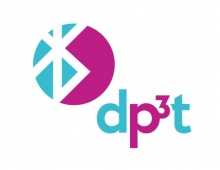
FTC Asks Congress to Encourage Industry to Adopt "Do Not Track" Tools
The Federal Trade Commission testified before the U.S. Congress about the agency's efforts to protect consumer privacy, including the FTC's support for implementation of a "Do Not Track" mechanism.
"Do Not Track" would allow consumers to control the tracking of their online activities across websites.
FTC Chairman Jon Leibowitz said the current time is a "critical juncture" for consumer privacy, and described the FTC's recent privacy report, including its call for final implementation of a Do Not Track mechanism. The testimony notes that the Commission recommends Congress consider enacting general privacy legislation, and that it enact data security and breach notification legislation and targeted legislation to address data brokers.
The report, titled "Protecting Consumer Privacy in an Era of Rapid Change: Recommendations for Businesses and Policymakers," advocates three main principles for protecting consumer privacy. First, companies should adopt a "privacy by design" approach by building privacy protections into their everyday business practices. Second, companies should provide simpler and more streamlined choices to consumers about their data practices. Third, companies should take steps to make their data practices more transparent. In particular, companies that don?t deal directly with consumers, such as data brokers, should give consumers reasonable access to the data they maintain about them. The report urges individual companies and self-regulatory bodies to accelerate the adoption of the principles contained in the privacy framework.
According to the testimony, the FTC's final privacy report recommends continued implementation of a Do Not Track mechanism that would allow consumers to choose whether they want to allow advertisers and other third parties to collect information about their Internet activity. The final report highlights initiatives undertaken by a number of companies to respond to the Commission's call for Do Not Track: Microsoft, Mozilla, Apple, Google, the online advertising industry through the Digital Advertising Alliance, and the World Wide Web Consortium, an international standard-setting body, have all taken significant steps forward.
The Commission vote approving the testimony and its inclusion in the formal record was 3-1-1.
FTC Chairman Jon Leibowitz said the current time is a "critical juncture" for consumer privacy, and described the FTC's recent privacy report, including its call for final implementation of a Do Not Track mechanism. The testimony notes that the Commission recommends Congress consider enacting general privacy legislation, and that it enact data security and breach notification legislation and targeted legislation to address data brokers.
The report, titled "Protecting Consumer Privacy in an Era of Rapid Change: Recommendations for Businesses and Policymakers," advocates three main principles for protecting consumer privacy. First, companies should adopt a "privacy by design" approach by building privacy protections into their everyday business practices. Second, companies should provide simpler and more streamlined choices to consumers about their data practices. Third, companies should take steps to make their data practices more transparent. In particular, companies that don?t deal directly with consumers, such as data brokers, should give consumers reasonable access to the data they maintain about them. The report urges individual companies and self-regulatory bodies to accelerate the adoption of the principles contained in the privacy framework.
According to the testimony, the FTC's final privacy report recommends continued implementation of a Do Not Track mechanism that would allow consumers to choose whether they want to allow advertisers and other third parties to collect information about their Internet activity. The final report highlights initiatives undertaken by a number of companies to respond to the Commission's call for Do Not Track: Microsoft, Mozilla, Apple, Google, the online advertising industry through the Digital Advertising Alliance, and the World Wide Web Consortium, an international standard-setting body, have all taken significant steps forward.
The Commission vote approving the testimony and its inclusion in the formal record was 3-1-1.





















